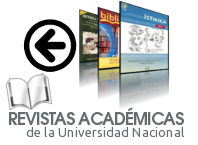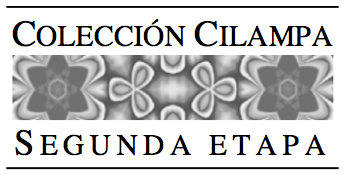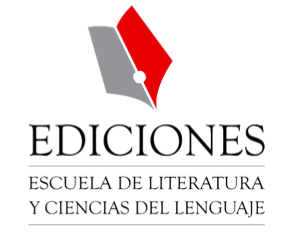A Comparative Approach for Pronunciation Instruction in English
DOI:
https://doi.org/10.15359/rl.2-76.4Keywords:
vowels, consonants, EFL, World Englishes, Costa Rica, phonemesAbstract
A tool is proposed to reinforce the pronunciation of vowels and consonants for the instruction of adult learners in Costa Rica. A critical review of literature on approaches to teaching vowels and consonants is followed by a comparative discussion of two transcription systems: that of the International Phonetic Association, and those found in textbooks, dictionaries and pronunciation websites. This is complemented by a brief comparison of English and Spanish vowels and consonants, and descriptions of common pronunciation challenges for Spanish speakers. Open problems are explored, as are ethical reflections on the teaching of English pronunciation.
References
Acuña Aguilar, Elian and Johanna Quirós Cordero. Implementation of the Multistage Frame Technique to Enhance Students’ Pronunciation of Standard American English Vowel Sounds in Group 10-1A at Canaán High School. Licentiate thesis. Universidad Nacional, Costa Rica, 2017. <https://repositorio.una.ac.cr/handle/11056/18097>.
Aguilar-Sánchez, Jorge. “Diglossia and Language Contact in Limón, Costa Rica,” Letras 72 (2022): 129-161. DOI: https://doi.org/10.15359/rl.2-72.6.
Alvarado Castillo, Yendry and Lena Barrantes Elizondo. “Teaching Explicit English Pronunciation to Young Learners,” Memoria II Congreso de Lingüística Aplicada (CONLA), Joe Montenegro Bonilla and Jacqueline Araya Ríos, Eds. (Pérez Zeledón: Universidad Nacional, Sede Regional Brunca, 2015) 52-67. <https://repositorio.una.ac.cr/handle/11056/19038?show=full>.
Avery, Peter and Susan Ehrlich. Teaching American English Pronunciation. Oxford: Oxford University Press, 2010.
Baker, Ann and Sharon Goldstein. Pronunciation Pairs. 2nd ed. Cambridge: Cambridge University Press, 2008.
Bhowmik, Subrata Kumar. “World Englishes and English Language Teaching: A Pragmatic and Humanistic Approach,” Colombian Applied Linguistics 17, 1 (2015): 142-157. DOI: http://dx.doi.org/10.14483/udistrital.jour.calj.2015.1.a10.
Brinton, Lauren J. The Structure of Modern English. Amsterdam: John Benjamins, 2010.
Brown, Adam. Activities and Exercises for Teaching English Pronunciation. London and New York: Routledge, 2022.
Brown, Adam. Pronunciation and Phonetics: A Practical Guide for English Language Teachers. London and New York: Routledge, 2015.
Cameron, Susan. Perfecting Your English Pronunciation. New York: McGraw-Hill, 2012.
Carley, Paul and Inger M. Mees. American English Phonetics and Pronunciation Practice. London and New York: Routledge, 2020.
Carr, Philip. English Phonetics and Phonology: An Introduction, 3rd ed. Hoboken, NJ: Wiley-Blackwell, 2019.
Celce-Murcia, Marianne, Donna M. Brinton and Janet M. Goodwin. Teaching Pronunciation. Cambridge: Cambridge University Press, 1996.
Clark, John C. and others. An Introduction to Phonetics and Phonology, 3rd ed. Oxford: Blackwell, 2007.
Collins, Beverley, Inger M. Mees and Paul Carley. Practical English Phonetics and Phonology: A Resource Book for Students, 4th ed. London and New York: Routledge, 2019.
Collins COBUILD Diccionario de inglés-español para estudiantes de inglés. Nashville, TN: HarperCollins, 2016.
Dalbor, John B. Spanish Pronunciation: Theory and Practice. New York, Toronto, and London: Holt, Rinehart, and Winston, 1969.
Dale, Paulette and Lillian Poms. English Pronunciation for Spanish Speakers: Vowels. Englewood Cliffs, NJ: Prentice-Hall, 1985.
Dale, Paulette and Lillian Poms. English Pronunciation for Spanish Speakers: Consonants. Englewood Cliffs, NJ: Prentice-Hall, 1986.
Dale, Paulette and Lillian Poms. English Pronunciation Made Simple. London: Longman, 2005.
Dauer, Rebecca A. Accurate English: A Complete Course in Pronunciation. Hoboken, NJ: Prentice Hall Regents, 1993.
Davenport, Mike and S. J. Hannahs. Introducing Phonetics and Phonology, 4.ª ed. London and New York: Routledge, 2020.
Fallas Escobar, Christian. “EFL Learners’ Self-concept: Repercussions of Native Speakerism,” International Journal for 21st Century Education 5, 1 (2018): 19-35. DOI: 10.21071/ij21ce.v5i1.5796.
Farlex Group. Complete English Spelling and Pronunciation Rules. Farlex International, 2017.
Finch, Diana F. and Héctor Ortiz Lira. A Course in English Phonetics for Spanish Speakers. London: Heinemann, 1982.
Garita Sánchez, María del Rosario, González Lutz, María Isabel and Solís Pérez, Nathalia. “English Vowel Sounds: Pronunciation Issues and Student and Faculty Perceptions,” Actualidades Investigativas en Educación 19, 3, (2019): 1-32. DOI: https://doi.org/10.15517/aie.v19i3.38629.
Gilbert, Judy B. Teaching Pronunciation: Using the Prosody Pyramid. Cambridge: Cambridge University Press, 2008.
Gómez González, María de los Ángeles and Teresa Sánchez Roura. English Pronunciation for Speakers of Spanish: From Theory to Practice. Berlin and Boston: De Gruyter Mouton, 2016.
Gordon, Joshua. “The Knowledge Base of L2 Pronunciation Teaching: The Case of a Non-native-Speaking Teacher,” TESL Canada 36, 2 (2019): 93-108. DOI: https://doi.org/10.18806/tesl.v36i2.1315.
Hancock, Mark. Pronunciation Games. Cambridge: Cambridge University Press, 1995.
Hewings, Martin. Pronunciation Tasks: A Course for Pre-Intermediate Learners Cambridge: Cambridge University Press, 2002.
Hewings, Martin and Sharon Goldstein. Pronunciation Plus. Cambridge: Cambridge University Press, 2008.
Hughes, Arthur, Peter Trudgill and Dominie Watt. English Accents and Dialects. 5th ed. London and New York: Routledge, 2012.
International Phonetic Association. Handbook of the International Phonetic Association. Cambridge: Cambridge University Press, 1999.
International Phonetic Association. “The International Phonetic Alphabet (revised to 2020). <https://www.internationalphoneticassociation.org/IPAcharts/IPA_chart_orig/pdfs/IPA_Kiel_2020_full.pdf>.
Kang, Okim, Ron I. Thomson and John M. Murphy, Eds. The Routledge Handbook of Contemporary English Pronunciation. London and New York: Routledge, 2018.
Kelly, Gerald. How to Teach Pronunciation. London: Longman, 2007.
Kenworthy, Joanne. Teaching English Pronunciation. London: Longman, 1987.
Knight, Rachael-Anne. Phonetics: A Coursebook. Cambridge: Cambridge University Press, 2012.
Ladefoged, Peter and Keith Johnson. A Course in Phonetics, 7th ed. Boston: Cengage, 2014
Lujan, Beverly A. The American Accent Guide, 2nd ed. Salt Lake City: Lingual Arts, 2004.
Markey, Amy. “A Contrastive Analysis of French and American English,” BA thesis, Swarthmore, PA: Swarthmore College, 1998. <http://hdl.handle.net/10066/10534>.
Mojsin, Lisa. Mastering the American Accent. New York: Barron’s, 2009.
Moksvold, Shawn. English Pronunciation: A Brief Guide for Spanish Speakers. 2020.
Monroy Casas, Rafael. La pronunciación del inglés R. P. para hablantes del español. Madrid: Paraninfo, 1980.
Morley, Joan. Improving Spoken English. Ann Arbor, MI: The University of Michigan Press, 1979.
Mott, Brian. English Phonetics and Phonology for Spanish Speakers. 2nd ed. Barcelona: Publicacions i Edicions Universitat de Barcelona, 2011.
Mozaheb, Mohammad Amin and Abbas Monfared. “Exonormativity, Endonormativity or Multilingualism: Teachers’ Attitudes towards Pronunciation Issues in Three Kachruian Circles,” Journal of English as an International Language 15, 2 (2020): 27-51.
Nash, Rose. Comparing English and Spanish. Patterns in the Phonology and Orthography. New York: Regents, 1977.
Nilsen, Don L. F. and Alleen Pace Nilsen. Pronunciation Contrasts in English, 2 ed. Long Grove, IL: Waveland Press, 2010.
O’Grady, William, John Archibald, Mark Aronoff and Jamie Rees-Miller. Contemporary Linguistics: Applied Introduction. Boston: Bedford/St. Martin’s, 2010.
Orion, Gertrude F. Pronouncing American English. Rowley, MA: Newbury House, 1988.
Pizarro Chacón, Ginneth and Damaris Cordero Badilla. “Problemas fonológicos en aprendientes costarricenses de inglés,” Letras 58 (2015): 141-171. DOI: https://doi.org/10.15359/rl.2-58.7.
Prator, Clifford H. and B. A. Robinett. Manual of American English Pronunciation, 4th ed. New York: Holt-Rinehart-Winston, 1985.
Pullum, Geoffrey K. and William A Ladusaw. Phonetic Symbol Guide, 2nd ed. Chicago: University of Chicago Press, 1996.
Real Académica Española. Nueva gramática de la lengua española. Fonética y fonología. Madrid: Espasa, 2011.
Reed, Marnie and John M. Levis, Eds. The Handbook of English Pronunciation. West Sussex: Wiley Blackwell, 2015.
Roach, Peter. English Phonetics and Phonology: A Practical Course, 4th ed. Cambridge: Cambridge University Press, 2010.
Sánchez Benedito, Francisco. Manual de pronunciación inglesa comparada con la española. Madrid: Alhambra, 1980.
Sevilla-Morales, Henry and Chaves-Fernández, Lindsay. “A Register-Based Perspective to Suprasegmentals in ELT,” Pensamiento Actual 20, 35 (2020): 32-42. DOI: 10.15517/PA.V20I35.44375.
Stockwell, Robert P. and J. Donald Bowen. The Sounds of English and Spanish. Chicago: The University of Chicago Press, 1965.
The American Heritage College Dictionary. Boston, MA: Houghton Mifflin, 2007.
Tudor, Ian. The Dynamics of the Language Classroom. Cambridge: Cambridge University Press, 2001.
Villalobos Ulate, Nuria. “Using Songs to Improve EFL Students’ Pronunciation,” Letras 44 (2007): 93-108. DOI: https://doi.org/10.15359/rl.2-44.5.
Walker, Robin. Teaching Pronunciation of English as a Lingua Franca. Oxford: Oxford University Press, 2015.
Whitley, M. Stanley. A Course in Spanish Linguistics: Spanish/English Contrasts, 2nd ed. Washington, D.C.: Georgetown University Press, 2002.
Wikipedia, “Pronunciation Respelling for English.”
<https://en.wikipedia.org/wiki/Pronunciation_respelling_for_English>.
Wolfram, Walt and Natalie Schilling. American English: Dialects and Variation. West Sussex: Wiley-Blackwell, 2016.
Yates, Jean. Pronounce It Perfectly in English. New York: Barron's, 2013.
Yavas, Mehmet. Applied English Phonology, 3rd ed. West Sussex: Wiley-Blackwell, 2016.
Yoshida, Marla Tritch. Beyond Repeat After Me: Teaching Pronunciation to English Learners. San Francisco: TESOL Press, 2016.
Zsiga, Elizabeth C. The Phonetics/Phonology Interface. Edinburgh: Edinburgh University Press, 2020.
Downloads
Published
How to Cite
Issue
Section
License
Principios básicos:
a) Los autores conservarán los derechos de propiedad intelectual de sus aportes o artículos;
b) Cada autor deberá indicar expresamente que ese artículo lo entrega, en calidad de exclusividad, a la revista LETRAS; y
c) La revista Letras se reservará el derecho de autorizar para fines académicos no lucrativos la reproducción y uso de ese material por parte de terceros, siempre que éstos indiquen expresamente la procedencia del artículo. Todo ello se postula en concordancia con la normativa de "Creative Commons Atribution License", recomendada.

This work is licensed under a Creative Commons Attribution-NonCommercial-NoDerivs 3.0 Costa Rica License.















